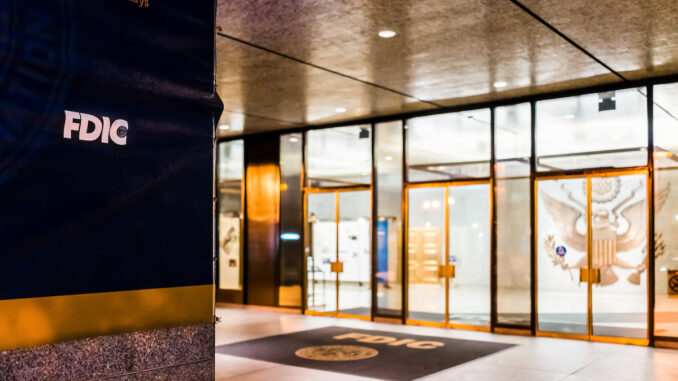
First Citizens Bank & Trust Company will acquire failed Silicon Valley Bank (SVB), which unexpectedly failed earlier this month and sent shock waves across the financial sector.
The North Carolina-based First Citizens announced on Monday an agreement with the Federal Deposit Insurance Corporation (FDIC) to acquire all of SVB’s deposits and loans that were moved to an FDIC-created bridge bank after the collapse.
“We have partnered with the FDIC to successfully complete more FDIC-assisted transactions since 2009 than any other bank, and we appreciate the confidence the FDIC has placed in us once again,” Frank Holding, Jr., the chief executive of First Citizens, said in a statement.
The 17 former SVB branches will open as First Citizens branches on Monday and former SVB customers will automatically become depositors of First Citizens.
The abrupt closure of SVB, after a run on deposits had left it insolvent, marked the largest bank failure in the U.S. since the 2008 financial crisis. SVB was the country’s 16th largest bank when the FDIC put it in receivership.
After the FDIC seized control of SVB on March 10, the bank regulator has since been looking for a buyer for the bank either in its entirety or in pieces.
As part of the agreement, First Citizens Bank will assume assets of $110 billion, deposits of $56 billion and loans of $72 billion from SVB, according to the latest information provided by the FDIC. About $90 billion in SVB’s securities and other assets were not included in the sale and remained in the FDIC’s control
First Citizens and the FDIC will share in any losses on the loans included in the transaction.
The FDIC estimates the cost of the failure of Silicon Valley Bank to its Deposit Insurance Fund (DIF) to be approximately $20 billion. The exact cost will be determined when the FDIC terminates the receivership.
First Citizens Bank will additionally receive an available line of credit from the FDIC for contingent liquidity purposes.
Founded in 1898, First Citizens has more than 500 branches across 22 states. The bank said on Monday deposits had grown by $1.3 billion since the start of 2023. After the deal, the bank would have more than $40 billion in cash on hand.
As HousingWire reported earlier in March, SVB operated as a portfolio lender in the residential mortgage space, holding loans on its balance sheet. This structure allows the bank to offer clients “common sense underwriting and provide more nimble prequalifications, approvals and closings,” the bank wrote on its website.
SVB focuses on jumbo loans (greater than $726,200), which have lower rates, for primary and secondary homes. Its mortgage origination volume reached $2.4 billion in 12 months, through 30 active loan officers and 20 branches, according to mortgage tech platform Modex. In total, 76.6% of the production was conventional loans and 49% consisted of purchase loans. The company’s average mortgage loan was about $1.45 million, and the vast majority of its origination volume has been in California.
